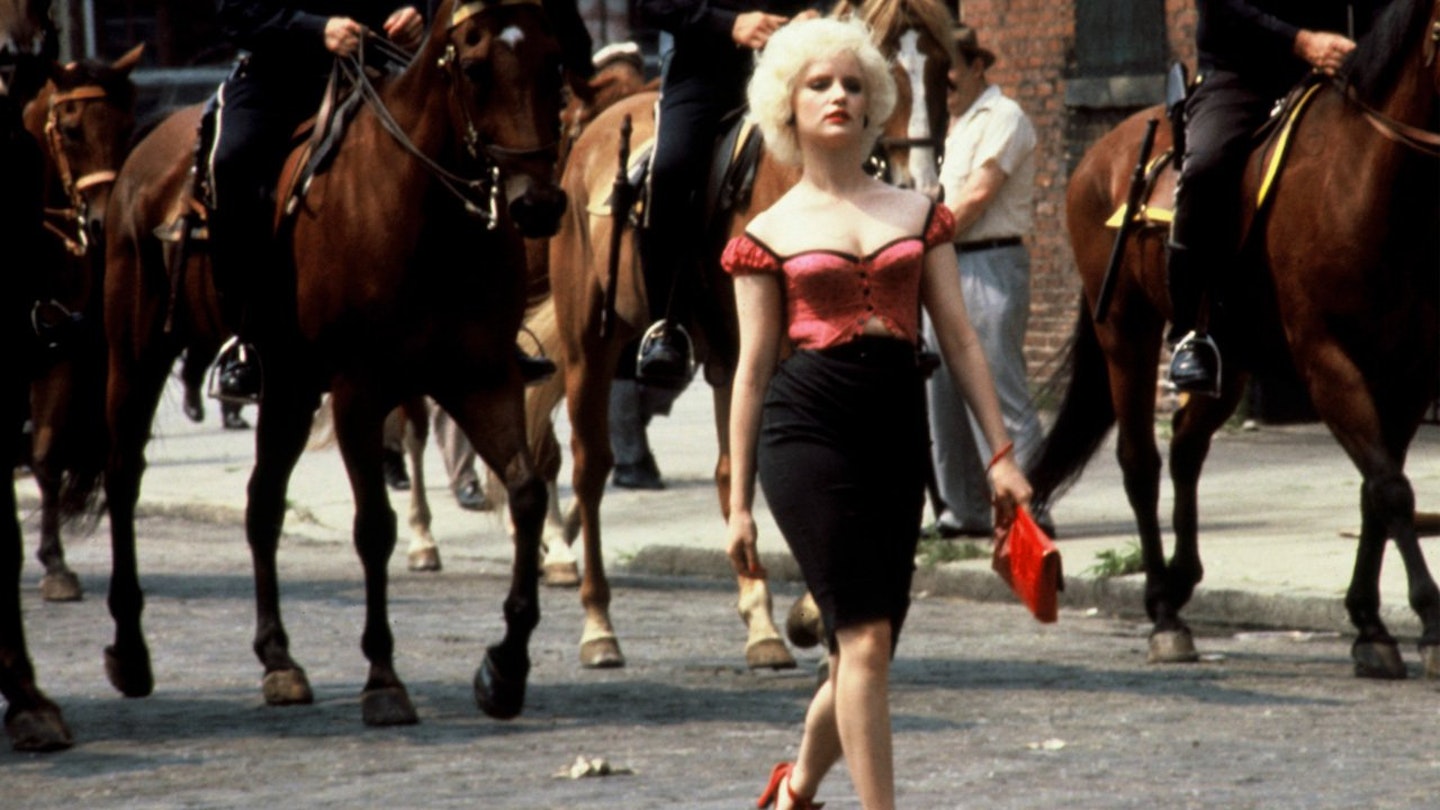A full quarter of a century after it became the subject of a celebrated court case centering on the meaning of the term a tendency to deprave and corrupt, Hubert Selby Jnr.s American classic reaches the screen imbued, despite its all-American cast and locations, with a profoundly European sensibility. Producer Bernd Eichinger (The Name Of The Rose, The Never-Ending Story) first worked with Edel on Christiane F, a tale of heroin addiction and youthful despair set in Berlin and best known for its David Bowie score and inordinate length. Scarcely surprisingly, their interpretation of Selbys vernacular sleaze presents the low-life of 1952 Brooklyn as an exercise in stylised American-retro costume and mannerism. It looks like the first X-rated Levis 501 commercial; all quiffs, jeans, Big Suits and reverent recreations of the kind of Edward Hopper neon-diner grunge the commercial-makers dote on.
Collapsing Selbys half-dozen vignettes into a single sustained narrative, Last Exit becomes an ensemble piece with uniformly powerful performances: Jennifer Jason Leigh heists the entire movie as Tralala, the neighbourhood tramp, though Stephen Longs corrupt closet-case union boss and Alexis Arquettes tormented drag queen run her close. (Ricki Lake the delightful star of John Waters Hairspray has a nice cameo which requires her to do little except cry, smile and be pregnant. The script uses great wodges of Selbys original dialogue but his narrative style cant be reproduced cinematically, which reduces chunks of the movie to post-Scorsese scenes of Italian-Americans in their underwear yelling at each other, which is no longer a novelty.
So, Last Exit To Brooklyn again proves that great novel do not necessarily make great movies. (Paradoxically, mediocre novels fare better, probably because there is less to compete with. What price Coppolas Godfather against Puzos or De Palmas Carrie against Kings?)
Impressively staged, powerfully performed and exquisitely designed, Last Exit To Brooklyn attempts to compensate with sheer style what it lacks in content. It comes closer to succeeding than one might have feared; in an era dominated by schlock and cowardly schlock at that - this is no mean feat.

